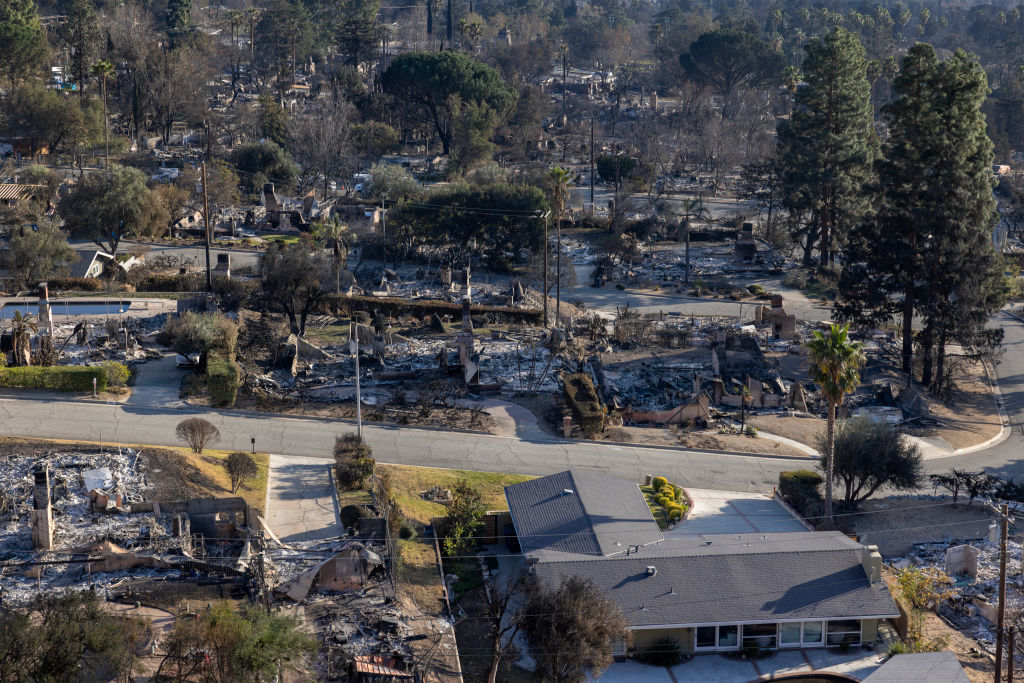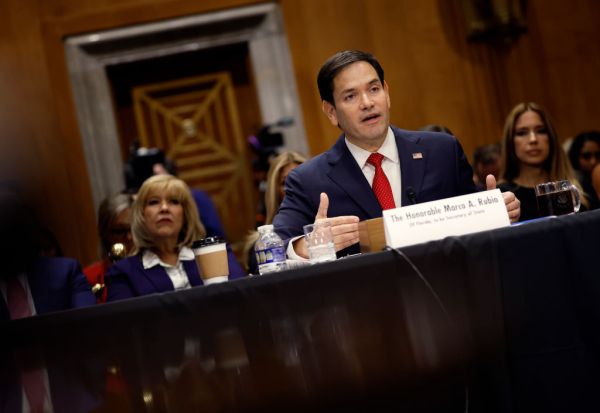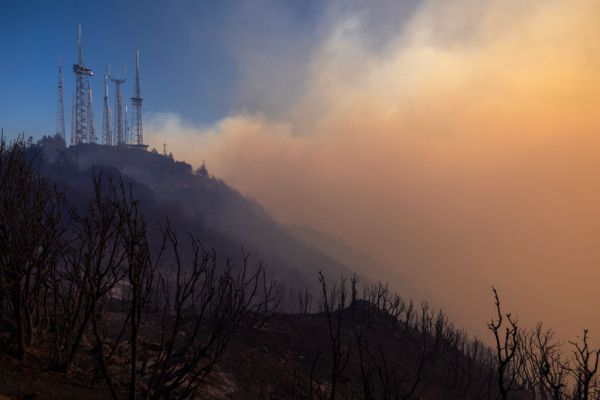The Southern California wildfires have destroyed thousands of homes and tens of thousands of people remain under evacuation orders as of Friday, prompting many social media users to speculate whether the current level of federal disaster relief aid is sufficient.
The Federal Emergency Management Agency (FEMA) is currently providing wildfire victims with $770 in “Serious Needs Assistance,” a one-time payment sent to aid victims in the immediate aftermath of a declared disaster. Posts questioning whether the $770 one-time payment is enough to help disaster victims are missing important context: There are other forms of federal assistance available.
“JUST IN: Biden just announced California fire victims are being given $770,” tweeted Nick Sortor, a self-described “independent journalist.” “Barely a FEW NIGHTS in a hotel out here in LA. Why are Americans given pennies while foreigners are given blank checks?!”
“Biden announced he’s giving these people—who lost their homes in a fire—$770,” Terrence Williams, a right-wing comedian, said in a video message shared to Facebook, X, and Instagram. “This is disgraceful, absolutely disgraceful. Straight-up pure insanity.” Williams added, “That’s not even enough money to clean up the ashes.”
Right-wing radio host and Newsmax anchor Todd Starnes tweeted, “Biden announces a ‘one time’ payment of $770 for wildfire victims. Biden stressed it’s a ‘one time’ payment—because you folks in Pacific Palisades aren’t Ukraine.”
Right-wing social media commentator David Freeman, known on X as “Gunther Eagleman,” falsely tweeted that the $770 is the maximum amount disaster victims can receive. “$0.00 – $770.00 for an American suffering from a natural disaster,” he tweeted. “See the problem yet?”
It’s true that while speaking from the Oval Office on Monday, Biden did announce that wildfire victims would receive a “one-time payment of $770,” but there are other forms of federal aid made available in addition to the $770. Biden said:
People impacted by these fires are going to receive [a] one-time payment of $770. One-time payment, so they can quickly purchase things like water, baby formula, and prescriptions. So far, nearly 6,000 survivors have registered to do just that and $5.1 million has gone out. And I encourage everyone, everyone who has been impacted to get assistance.
The Serious Needs Assistance program provides stopgap funds for immediate relief. FEMA updates the amount available every fiscal year and, for disasters declared on or after October 1, 2024, the amount increased from $750 to $770. As an earlier Dispatch Fact Check noted in the aftermath of Hurricane Helene:
FEMA’s Serious Needs Assistance program provides eligible applicants with a one-time payment of $750 per household, designed to cover immediate emergency expenses. The $750 payment is not intended to cover the full extent of disaster expenses. Rather, it ensures some federal aid assistance is made quickly available to disaster victims while the federal agency can process applications for additional funding under other various FEMA programs.
Determining how much federal assistance a disaster victim might need is not a quick or simple process. In many cases, evaluating the total amount a particular victim qualifies for will require an in-person inspection. Plus, a victim’s insurance coverage can make a final determination of relief aid eligibility a time-intensive endeavor. “FEMA may need your insurance determination to be finalized in order to continue processing your FEMA application to make sure you are not receiving funding for the same damage twice,” the federal agency explains on its website. “By law, FEMA cannot pay for costs related to the wildfires that your insurance already covers.”
Additional programs FEMA administers can cover victims’ incurred costs for needs including medical bills for “disaster-caused injuries or illnesses,” child care, and funeral expenses. Personal property that was damaged, such as owned vehicles, furniture, computers, moving and storage fees, and other “critical needs” belongings may also be covered by a FEMA disaster relief program.
Victims who have lost their homes, or whose homes have otherwise become uninhabitable, may also receive support from FEMA’s “Transitional Sheltering Assistance” (TSA) program, which provides government-funded temporary housing in various motels and hotels. As FEMA explains on its website,
TSA is a temporary program intended to provide short-term lodging for eligible disaster survivors whose primary residence is uninhabitable or inaccessible because of the disaster and are not covered by insurance additional living expenses or loss of use. Eligible applicants sign a terms and conditions document confirming their eligibility end date when they check into a participating hotel.
Under the TSA program, FEMA pays the cost of room, taxes, and non-refundable pet fees directly to participating hotels and motels. Survivors are responsible for all other costs, including laundry, restaurant/room service, parking, telephone, or movie rental.
Motels and hotels choose to participate in this government program voluntarily. However, in the case where all participating motel and hotel rooms are unavailable, FEMA has available alternative emergency shelter programs—such as the Displacement Assistance and Rental Assistance programs—under which victims can pay out-of-pocket for temporary housing and later be reimbursed by FEMA for the full amount.
If you have a claim you would like to see us fact check, please send us an email at factcheck@thedispatch.com. If you would like to suggest a correction to this piece or any other Dispatch article, please email corrections@thedispatch.com.










Please note that we at The Dispatch hold ourselves, our work, and our commenters to a higher standard than other places on the internet. We welcome comments that foster genuine debate or discussion—including comments critical of us or our work—but responses that include ad hominem attacks on fellow Dispatch members or are intended to stoke fear and anger may be moderated.
With your membership, you only have the ability to comment on The Morning Dispatch articles. Consider upgrading to join the conversation everywhere.